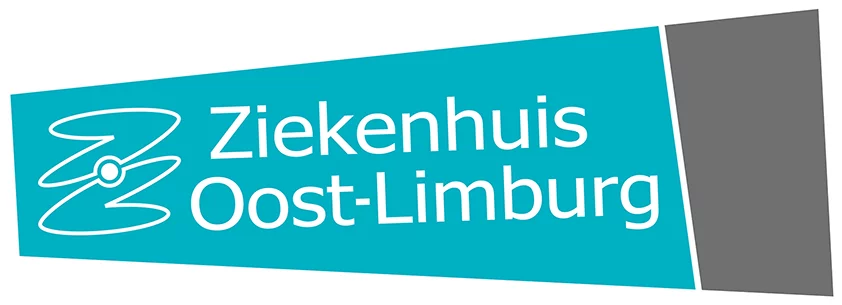Legal requirement
‘As a hospital we’re obliged to treat sensitive data extremely carefully,’ says Peter Thijs, CIO for East-Limburg Hospital. ‘The rules are much stricter for us than for a commercial enterprise, sometimes with the added difficulty that legislature hasn’t kept up with the many rapid technological developments. There is however more clarity and legal certainty about how to apply existing rules for new technologies now, and this has enabled Kohera, together with sister company ICTinus, to provide a solution as a Microsoft partner that offers the legally required certification and which clearly demonstrates it is in line with all national and European regulations. This was a great help in ultimately deciding to switch to the cloud.’

Stand-by disaster recovery
ZOL had already entrusted a large portion of its IT infrastructure to Kohera and ICTinus, with its databases previously consolidated into two on-site SQL Server systems and one on-site SQL Server that works with a delay. Kohera has also taken care of the database maintenance, backups and all operational procedures ever since. An active disaster recovery has now been added on Microsoft Azure too, to ensure the digital patient records can be accessed securely and reliably at all times.
The active data is still stored on servers in the ZOL buildings, but backup copies are kept in the cloud now too. Kohera implemented the SQL Server AlwaysOn Availability Groups, so patient records can always be looked up straight away. ‘The amount of data is increasing all the time, but whatever happens, the digital information can never be lost. This hybrid cloud solution from Kohera guarantees this,’ explains Thijs.

Lowest cost
The budget of course plays a very significant role in large IT projects. And this goes some way to explaining the cloud’s increasing popularity as it can result in substantial cost-savings largely thanks to its scalability. After comparing other alternatives, such as a private cloud, ZOL opted for this asynchronous disaster recovery in stand-by as the most affordable solution. ‘There are always new applications being added which set ever-increasing requirements for the infrastructure. We work with images which have ever-higher resolutions, for example, so we need more storage capacity and bandwidth,’ explains Thijs. It’s true that this increases the cost for upload bandwidth, but that’s more than offset by Microsoft Azure’s low storage and stand-by costs.
Completely secure data
Of course, everyone’s first concern when it comes to patient records: what about data protection? Can it be easily hacked or stolen? Isn’t the data visible to others if it’s kept on a server which lots of other companies are using too? Kohera deals with this concern by setting the bar very high when it comes to data protection. Kohera first encrypts ZOL’s patient records with SQL Server, and the latest features enable backups to be made with StorSimple, a hybrid cloud storage service that provides an extra layer of encryption. The backup files are then encrypted again and sent to Microsoft Azure. So there’s triple encryption for confidential patient records. And furthermore, the encryption keys are protected by a certificate.

About the customer
The East-Limburg Hospital has 3 campuses in Genk, Lanaken and Waterschei. It is a non-university hospital with 811 beds, 264 doctors and a total of 3315 employees.
© 2023 Kohera
Crafted by
© 2022 Kohera
Crafted by
| Cookie | Duration | Description |
|---|---|---|
| ARRAffinity | session | ARRAffinity cookie is set by Azure app service, and allows the service to choose the right instance established by a user to deliver subsequent requests made by that user. |
| ARRAffinitySameSite | session | This cookie is set by Windows Azure cloud, and is used for load balancing to make sure the visitor page requests are routed to the same server in any browsing session. |
| cookielawinfo-checkbox-advertisement | 1 year | Set by the GDPR Cookie Consent plugin, this cookie records the user consent for the cookies in the "Advertisement" category. |
| cookielawinfo-checkbox-analytics | 11 months | This cookie is set by GDPR Cookie Consent plugin. The cookie is used to store the user consent for the cookies in the category "Analytics". |
| cookielawinfo-checkbox-functional | 11 months | The cookie is set by GDPR cookie consent to record the user consent for the cookies in the category "Functional". |
| cookielawinfo-checkbox-necessary | 11 months | This cookie is set by GDPR Cookie Consent plugin. The cookies is used to store the user consent for the cookies in the category "Necessary". |
| cookielawinfo-checkbox-others | 11 months | This cookie is set by GDPR Cookie Consent plugin. The cookie is used to store the user consent for the cookies in the category "Other. |
| cookielawinfo-checkbox-performance | 11 months | This cookie is set by GDPR Cookie Consent plugin. The cookie is used to store the user consent for the cookies in the category "Performance". |
| CookieLawInfoConsent | 1 year | CookieYes sets this cookie to record the default button state of the corresponding category and the status of CCPA. It works only in coordination with the primary cookie. |
| elementor | never | The website's WordPress theme uses this cookie. It allows the website owner to implement or change the website's content in real-time. |
| viewed_cookie_policy | 11 months | The cookie is set by the GDPR Cookie Consent plugin and is used to store whether or not user has consented to the use of cookies. It does not store any personal data. |
| Cookie | Duration | Description |
|---|---|---|
| __cf_bm | 30 minutes | Cloudflare set the cookie to support Cloudflare Bot Management. |
| pll_language | 1 year | Polylang sets this cookie to remember the language the user selects when returning to the website and get the language information when unavailable in another way. |
| Cookie | Duration | Description |
|---|---|---|
| _ga | 1 year 1 month 4 days | Google Analytics sets this cookie to calculate visitor, session and campaign data and track site usage for the site's analytics report. The cookie stores information anonymously and assigns a randomly generated number to recognise unique visitors. |
| _ga_* | 1 year 1 month 4 days | Google Analytics sets this cookie to store and count page views. |
| _gat_gtag_UA_* | 1 minute | Google Analytics sets this cookie to store a unique user ID. |
| _gid | 1 day | Google Analytics sets this cookie to store information on how visitors use a website while also creating an analytics report of the website's performance. Some of the collected data includes the number of visitors, their source, and the pages they visit anonymously. |
| ai_session | 30 minutes | This is a unique anonymous session identifier cookie set by Microsoft Application Insights software to gather statistical usage and telemetry data for apps built on the Azure cloud platform. |
| CONSENT | 2 years | YouTube sets this cookie via embedded YouTube videos and registers anonymous statistical data. |
| vuid | 1 year 1 month 4 days | Vimeo installs this cookie to collect tracking information by setting a unique ID to embed videos on the website. |
| Cookie | Duration | Description |
|---|---|---|
| ai_user | 1 year | Microsoft Azure sets this cookie as a unique user identifier cookie, enabling counting of the number of users accessing the application over time. |
| VISITOR_INFO1_LIVE | 5 months 27 days | YouTube sets this cookie to measure bandwidth, determining whether the user gets the new or old player interface. |
| YSC | session | Youtube sets this cookie to track the views of embedded videos on Youtube pages. |
| yt-remote-connected-devices | never | YouTube sets this cookie to store the user's video preferences using embedded YouTube videos. |
| yt-remote-device-id | never | YouTube sets this cookie to store the user's video preferences using embedded YouTube videos. |
| yt.innertube::nextId | never | YouTube sets this cookie to register a unique ID to store data on what videos from YouTube the user has seen. |
| yt.innertube::requests | never | YouTube sets this cookie to register a unique ID to store data on what videos from YouTube the user has seen. |
| Cookie | Duration | Description |
|---|---|---|
| WFESessionId | session | No description available. |